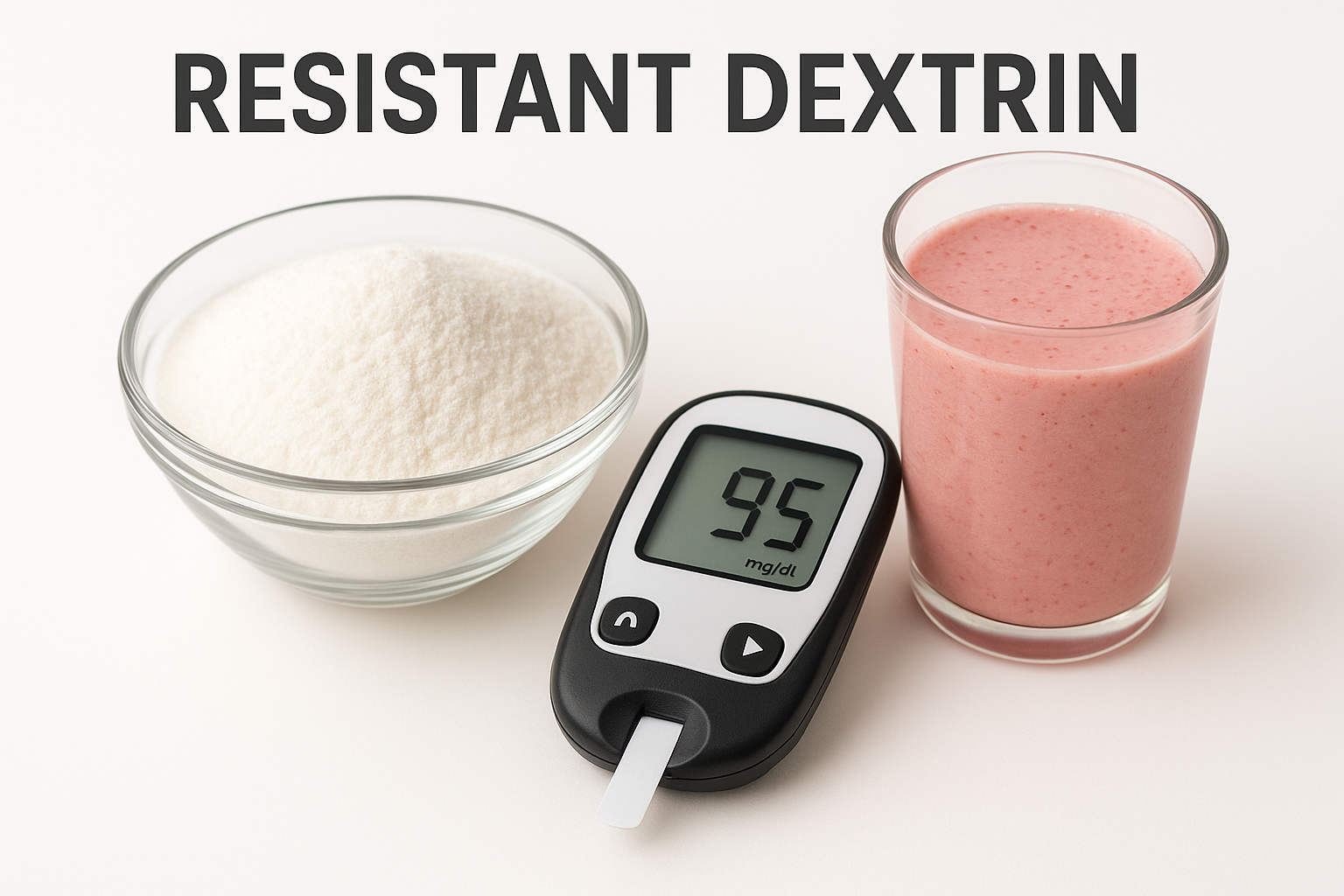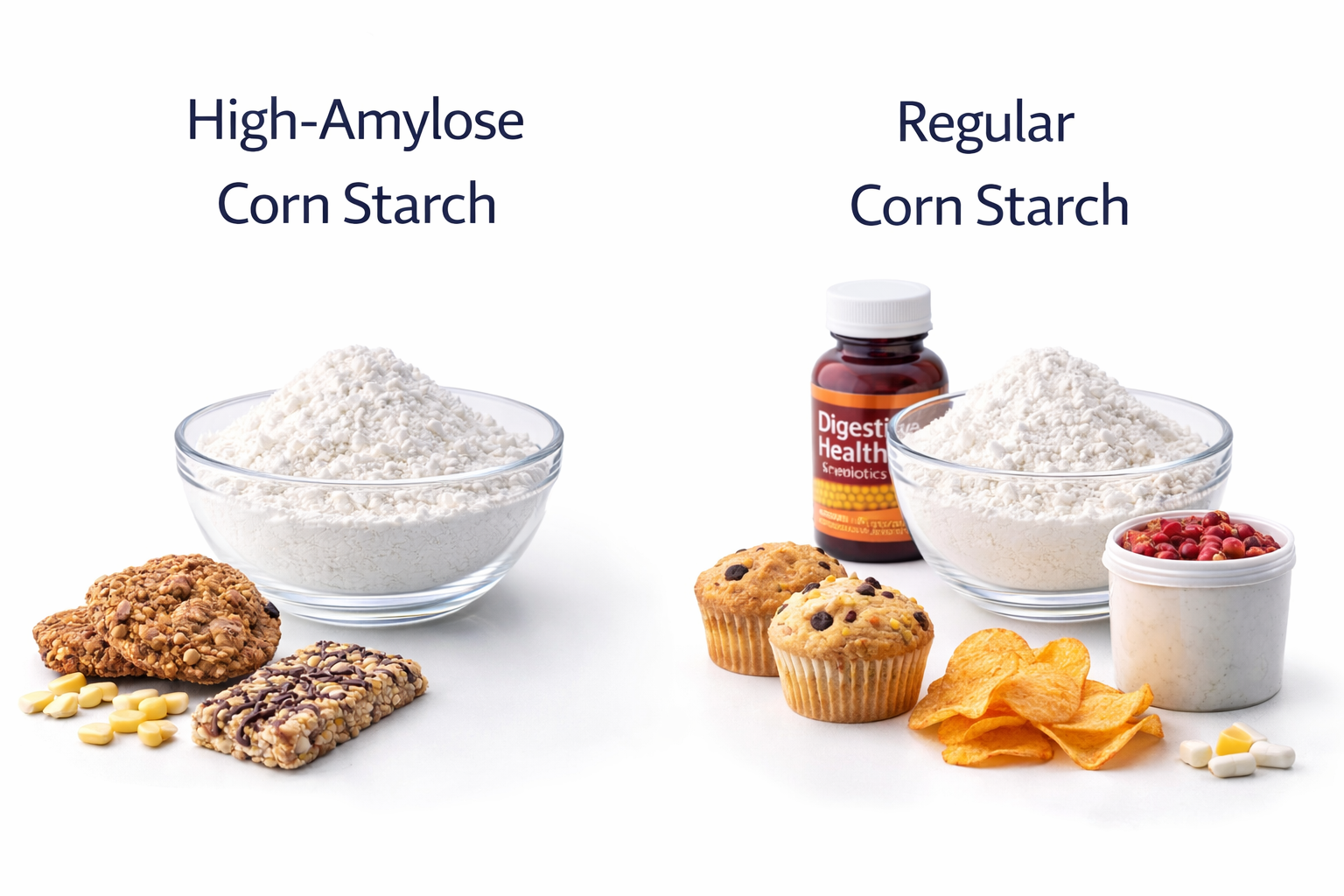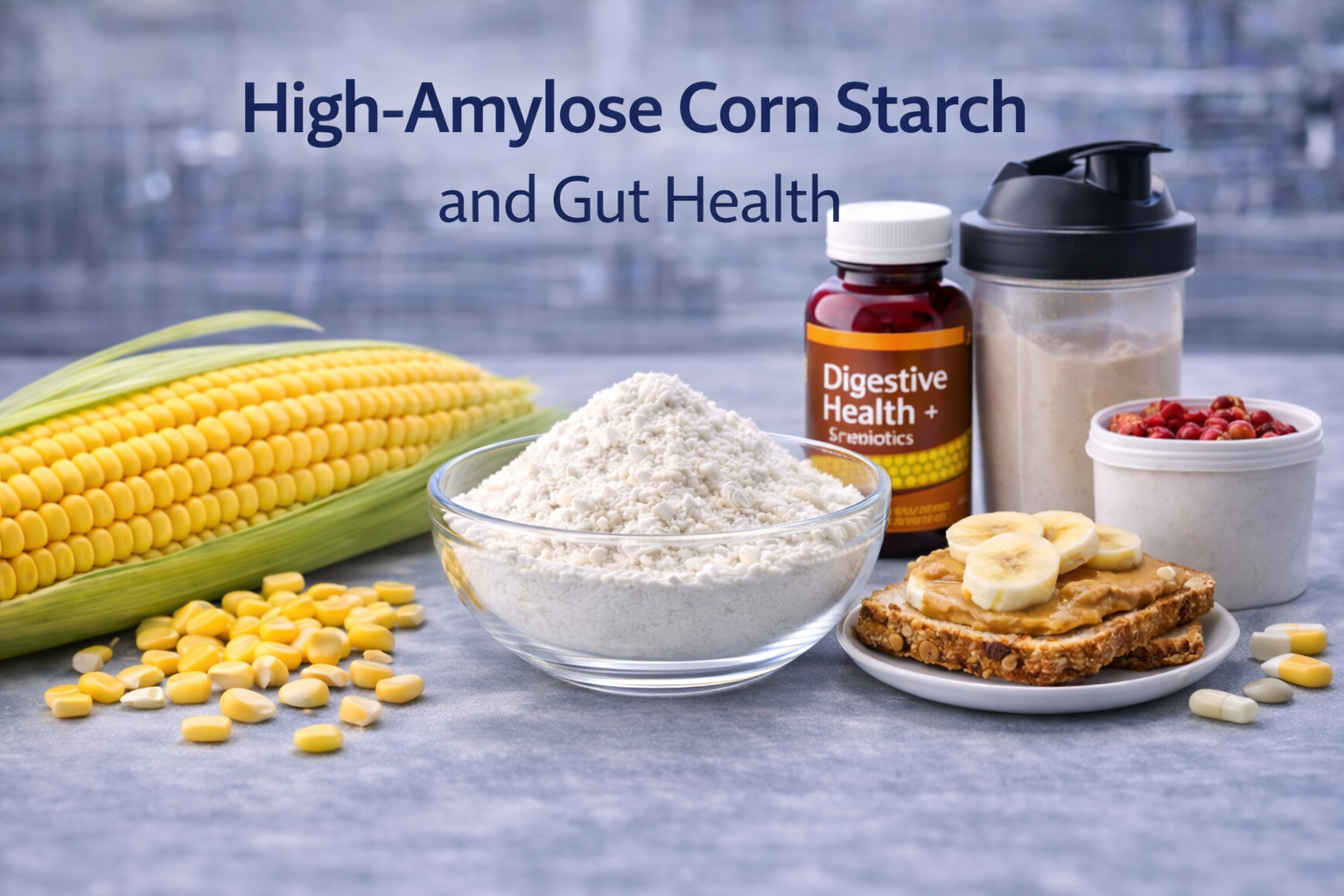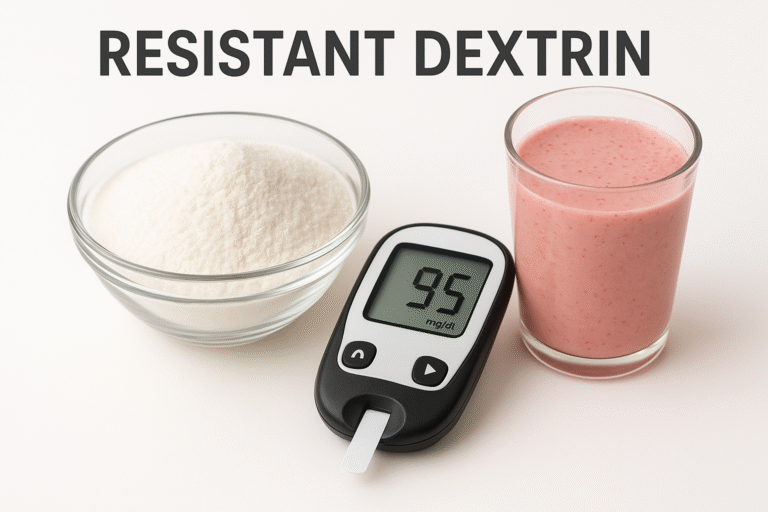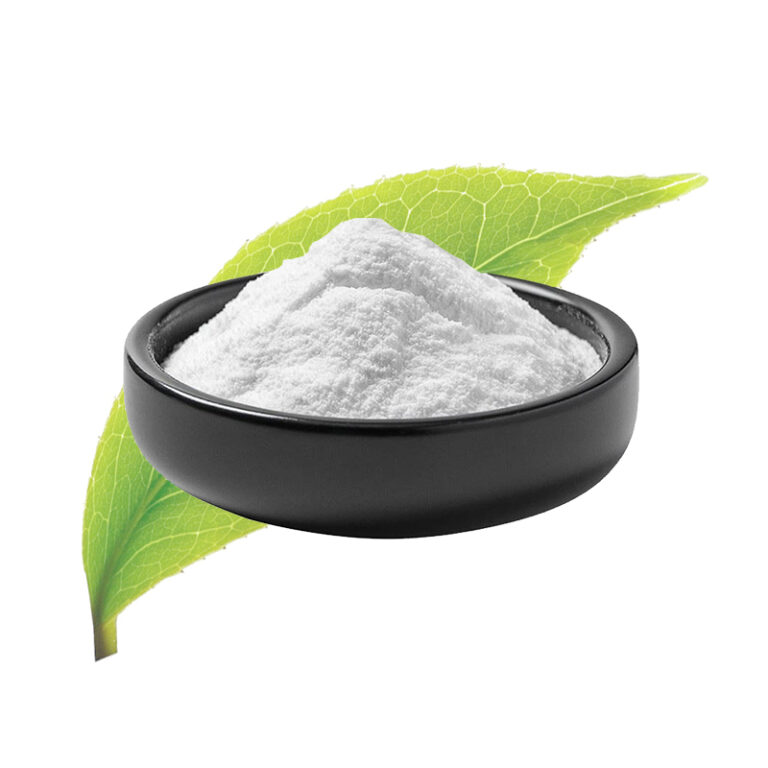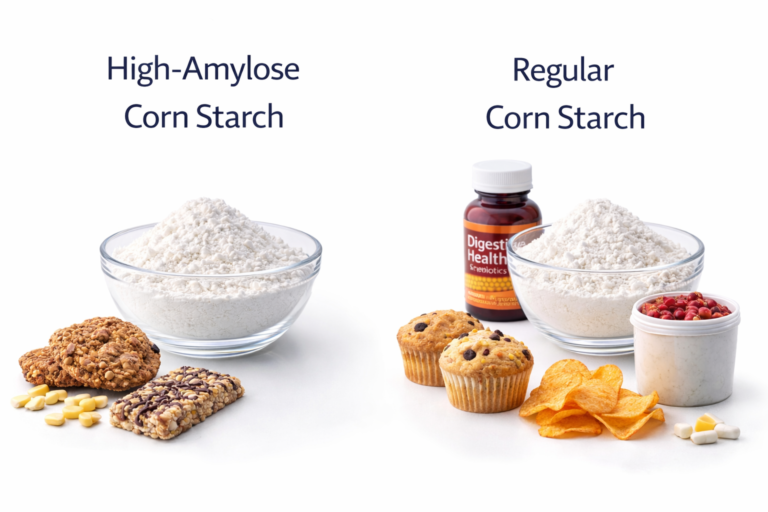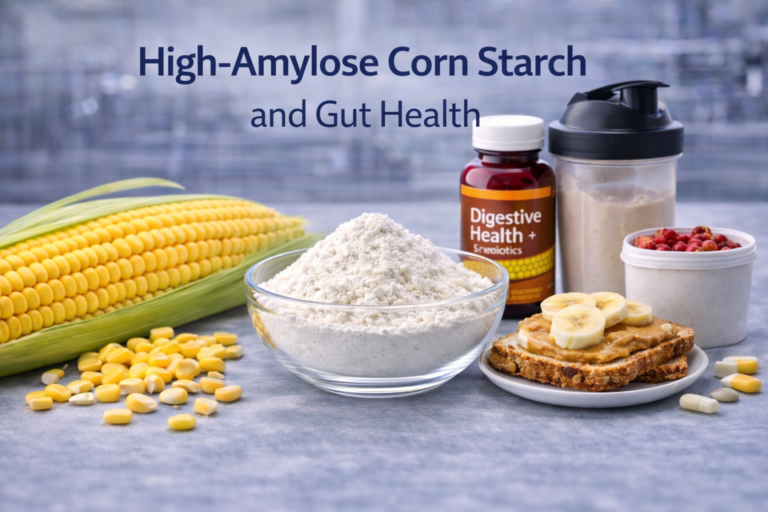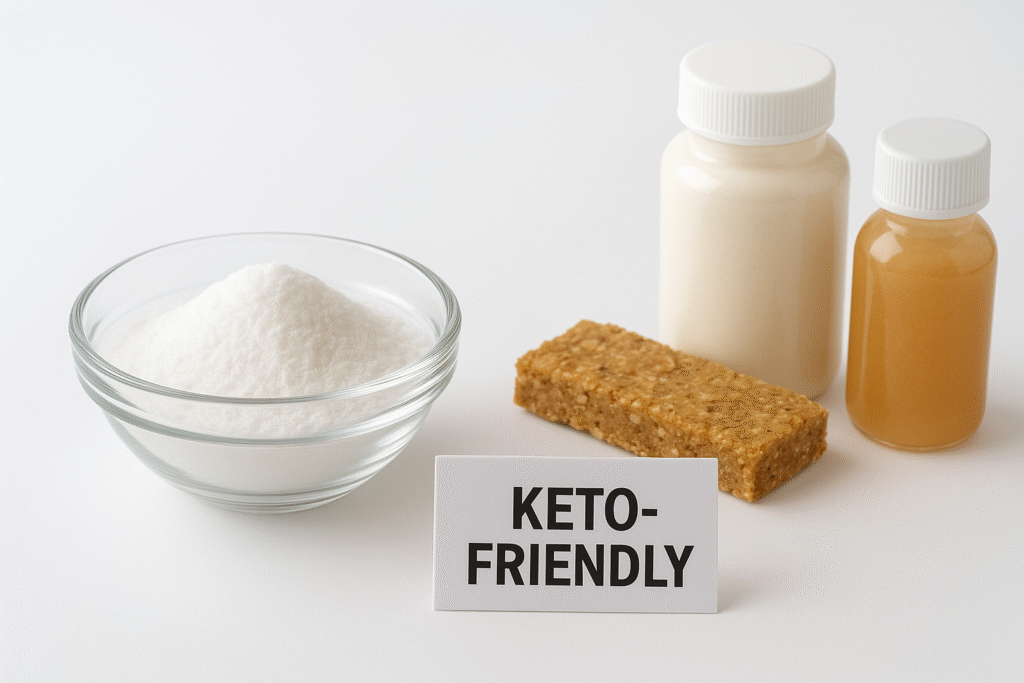
The keto trend continues to shape global food and supplement industries. Consumers are searching for low-carb, low-sugar alternatives that still deliver good taste and texture. Yet, many manufacturers face a major problem — how to make foods that stay sweet and smooth without breaking the keto rules.
Traditional sugar and high-carb fibers can quickly ruin a keto-friendly product. To solve this, formulators have turned to functional fibers such as Polydextrose. But confusion often arises: Is Polydextrose truly keto-friendly, or does it secretly add carbs?
Polydextrose is a synthetic polymer of glucose that acts as a low-calorie soluble fiber. It has a fraction of the calories of sugar and provides bulk, texture, and fiber-like benefits without raising blood sugar levels significantly. For brands creating low-carb or ketogenic products, understanding how Polydextrose behaves in the body is key to proper labeling, formulation, and consumer trust.
Yes, Polydextrose can be considered keto-friendly when used in moderation. Although it is made from glucose, its molecular structure prevents it from being digested like regular sugar. Around 90% of Polydextrose passes through the small intestine undigested, acting as a soluble fiber rather than a carbohydrate that raises blood sugar.
In nutritional labeling, Polydextrose contributes only 1 kcal per gram, compared to 4 kcal per gram from normal carbohydrates. It has a very low glycemic index, meaning it does not cause sharp spikes in blood sugar or insulin levels — two major concerns in keto diets.
However, the keto-friendliness of a product depends on the total carbohydrate content, including all added ingredients. While Polydextrose itself is largely non-digestible, excessive amounts may add a small amount of net carbs. Therefore, manufacturers typically include it in small percentages to improve texture, sweetness, and fiber content without compromising the ketogenic balance.
Now that you know Polydextrose can fit within keto guidelines, let’s explore the science, metabolism, and real-world applications behind this ingredient. Understanding these aspects will help you make informed decisions when developing low-carb or keto-friendly food products.
Table of Contents
- What Exactly Is Polydextrose?
- How Does Polydextrose Work in the Body?
- Why Is Polydextrose Used in Keto Formulations?
- What Are the Benefits of Using Polydextrose?
- How Much Polydextrose Can Be Used in Keto Products?
- What Should Manufacturers Know About Polydextrose Quality?
1. What Exactly Is Polydextrose?
Polydextrose is a synthetic soluble fiber produced from glucose, sorbitol, and citric acid. It is not a sugar but a polymer — meaning its glucose units are linked in a way that the body cannot easily digest.
Polydextrose is a low-calorie, fiber-like carbohydrate with minimal impact on blood sugar.
| Component | Source | Function |
|---|---|---|
| Glucose | Corn or starch | Base polymer unit |
| Sorbitol | Sugar alcohol | Plasticizer to control structure |
| Citric acid | Natural acid | Catalyst for polymerization |
Because most of its structure resists digestion, Polydextrose acts like dietary fiber rather than sugar. It is approved globally as a food additive (E1200) and is recognized as safe by the FDA and EFSA.
- Polydextrose behaves as a non-digestible carbohydrate, similar to soluble fiber.
- It provides bulk and texture without adding significant calories or sugars.
2. How Does Polydextrose Work in the Body?
When consumed, Polydextrose moves largely undigested through the small intestine, entering the large intestine where gut bacteria ferment it partially.
Polydextrose acts as a prebiotic fiber that supports gut health and provides minimal calories.
| Stage | Location | Effect |
|---|---|---|
| Digestion | Small intestine | Mostly undigested |
| Fermentation | Large intestine | Mild prebiotic effect |
| Absorption | Minimal | Only 10% absorbed as calories |
This limited absorption explains its low impact on blood glucose and keto compatibility. Polydextrose also supports beneficial gut flora and improves bowel regularity.
- Most Polydextrose bypasses digestion, producing a negligible glycemic response.
- It promotes intestinal balance and satiety in keto formulations.
3. Why Is Polydextrose Used in Keto Formulations?
Polydextrose is a favorite among keto product developers because it provides texture, fiber, and a touch of sweetness without sugar.
In keto foods, Polydextrose replaces sugar and flour, enhancing taste and texture while keeping carbs low.
| Property | Benefit in Keto Foods |
|---|---|
| Low calorie | Only 1 kcal/g |
| Non-digestible | Minimal glycemic effect |
| Neutral taste | No sweetness conflicts |
| Bulking agent | Replaces sugar volume |
It blends well with erythritol, stevia, or monk fruit to create balanced sweetness and mouthfeel in keto-friendly products.
- Polydextrose enhances sensory quality without raising net carbs.
- It supports clean-label, low-sugar food development.
4. What Are the Benefits of Using Polydextrose?
Beyond keto compatibility, Polydextrose offers multiple health and technical benefits.
Polydextrose improves digestive health, satiety, and product stability.
| Benefit | Description |
|---|---|
| Prebiotic fiber | Supports healthy gut bacteria |
| Satiety | Reduces hunger feelings |
| Texture enhancement | Improves product consistency |
| Sugar replacement | Maintains taste and volume |
- Polydextrose increases dietary fiber intake in low-carb diets.
- It helps manufacturers meet the growing demand for healthy, sugar-free foods.
5. How Much Polydextrose Can Be Used in Keto Products?
Regulatory bodies such as the FDA allow Polydextrose in a wide range of foods, with recommended intakes of up to 90 g per day.
Moderate use of Polydextrose ensures keto compliance and consumer tolerance.
When formulating keto foods, typical inclusion rates range from 2%–10% of total product weight. Overuse may cause mild gastrointestinal discomfort due to fermentation.
- Controlled use of Polydextrose ensures consumer comfort and product quality.
- Proper dosage maintains keto integrity and fiber benefits.
6. What Should Manufacturers Know About Polydextrose Quality?
Not all Polydextrose is the same. Purity, particle size, and solubility determine performance in formulations.
High-quality Polydextrose ensures consistent taste, texture, and regulatory compliance.
| Quality Factor | Importance |
|---|---|
| Purity | Affects taste and color |
| Solubility | Determines beverage clarity |
| Certification | Ensures safety and export compliance |
- Reliable manufacturing guarantees uniform performance and clean labeling.
- Certified Polydextrose supports international trade and brand credibility.
Polydextrose is a keto-friendly fiber that offers both nutritional and functional benefits. It provides texture, bulk, and mild sweetness without raising blood sugar. For keto and low-carb product developers, it serves as a safe, versatile ingredient to replace sugar and increase fiber content naturally.
At Besty Pharma, our factory specializes in producing high-purity Polydextrose that meets ISO, HALAL, and KOSHER standards. With advanced GMP-certified workshops and automated lines, we deliver non-GMO, clean-label Polydextrose suitable for keto, low-carb, and functional food formulations. Our technical experts provide tailored solutions and OEM/ODM support for brands seeking to lead in the healthy nutrition market. Partner with us to develop the next generation of keto-friendly ingredients that your customers can trust.

